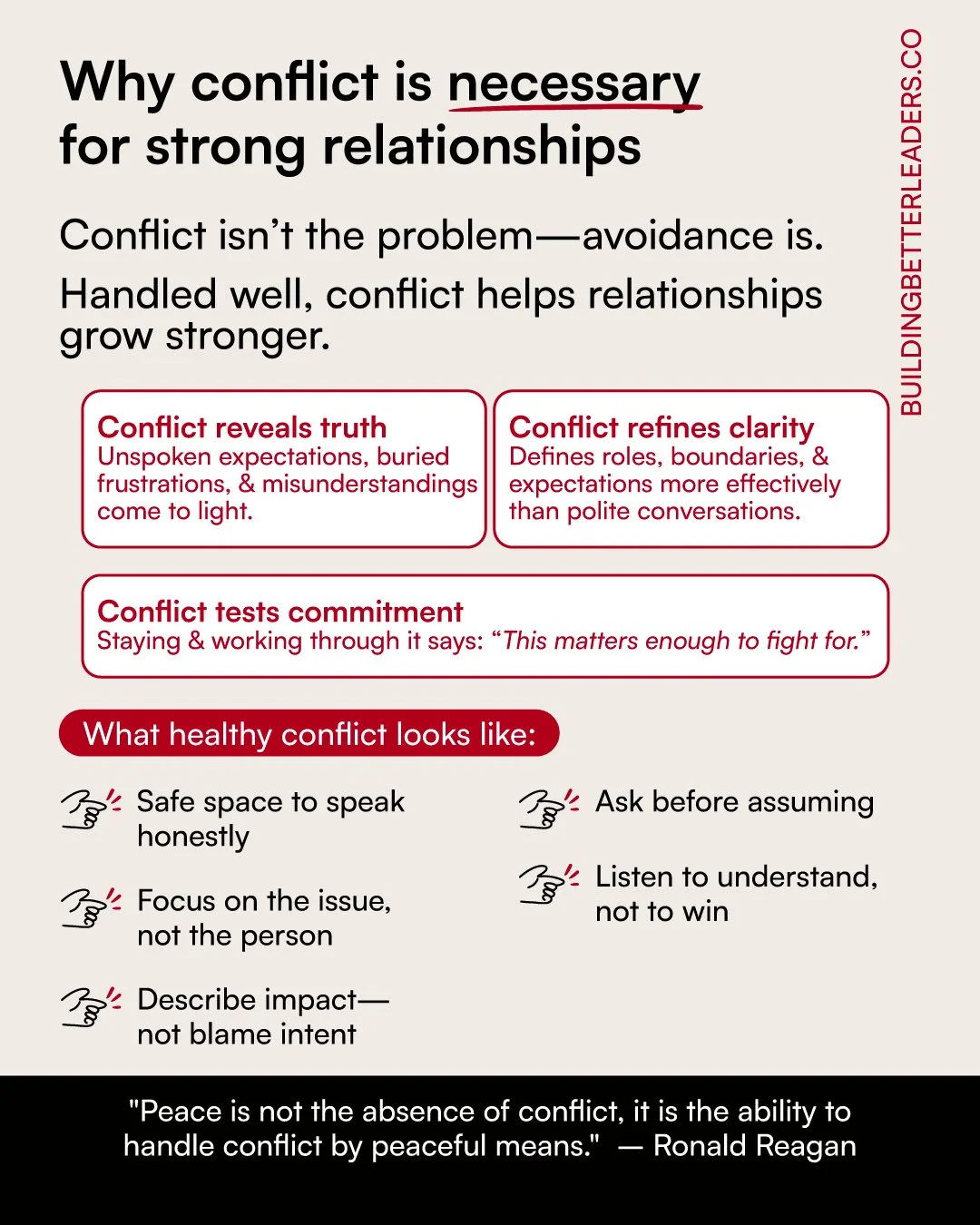Real relationships require conflict
What if avoiding conflict is the very thing that breaks the relationship?
For most of my life, I saw conflict as a threat. I was a person of peace, and peace to me meant the absence of arguments, the avoidance of tension, and always trying to keep things calm. I told myself, “I don’t want to argue and fight.” I genuinely believed that avoiding conflict was how you built strong relationships. After all, who enjoys confrontation?
But reality taught me a painful truth.
Avoiding conflict didn’t strengthen my relationships. It weakened them. In fact, it led to the breakdown of one of the most important relationships in my life. I’ve also hurt people I worked with because I wasn’t honest or direct enough to bring up difficult conversations.
What I’ve come to learn is this: conflict isn’t the enemy of relationships. In many ways, it’s the pathway to deeper connection. Here’s a new reframe for you to consider:
"Instead of viewing conflict as damaging to the relationship, view it as strengthening the relationship."
Why Conflict is Necessary for Strong Relationships
Here’s what I’ve learned about the value of conflict:
Conflict reveals truth. When we choose to engage in conflict, we’re choosing to bring what’s hidden to the surface—unspoken expectations, misunderstandings, and buried frustrations. Relationships grow when we speak the truth.
Conflict refines clarity. It helps define roles, expectations, and boundaries more clearly than polite conversations ever could.
Conflict tests commitment. When two people decides to stay in the room and work things out, it says, “I care enough about this relationship to fight for it, not walk away from it.”
What Does Healthy Conflict Look Like?
Facing conflict head on doesn’t mean charging in with anger or blaming others. It looks like:
Creating a safe environment. Healthy conflict only thrives in environments where people know they won’t be punished for speaking up.
Separating the problem from the person. The issue isn’t them as a person—it’s the situation and their behaviour you’re trying to solve together.
Naming the impact without blaming intent. “When that happened, here’s how it affected me.” This focuses on outcomes, not attacks.
Asking before assuming. “Can I clarify something with you?” opens space for dialogue instead of defensiveness.
Listening fully before responding. The goal is to understand, not win.
A New Way Forward
"Instead of viewing conflict as damaging to the relationship, view it as strengthening the relationship."
This reframe has changed the way I lead, live, and love. When I sense tension now, my instinct would ask me to run away but I have to intentionally tell myself to run towards it. Why? Because conflict, when handled well, is a gift. It's a bridge, not a bomb. And if we care about our relationships, we must learn to navigate it because real relationships require conflict.

